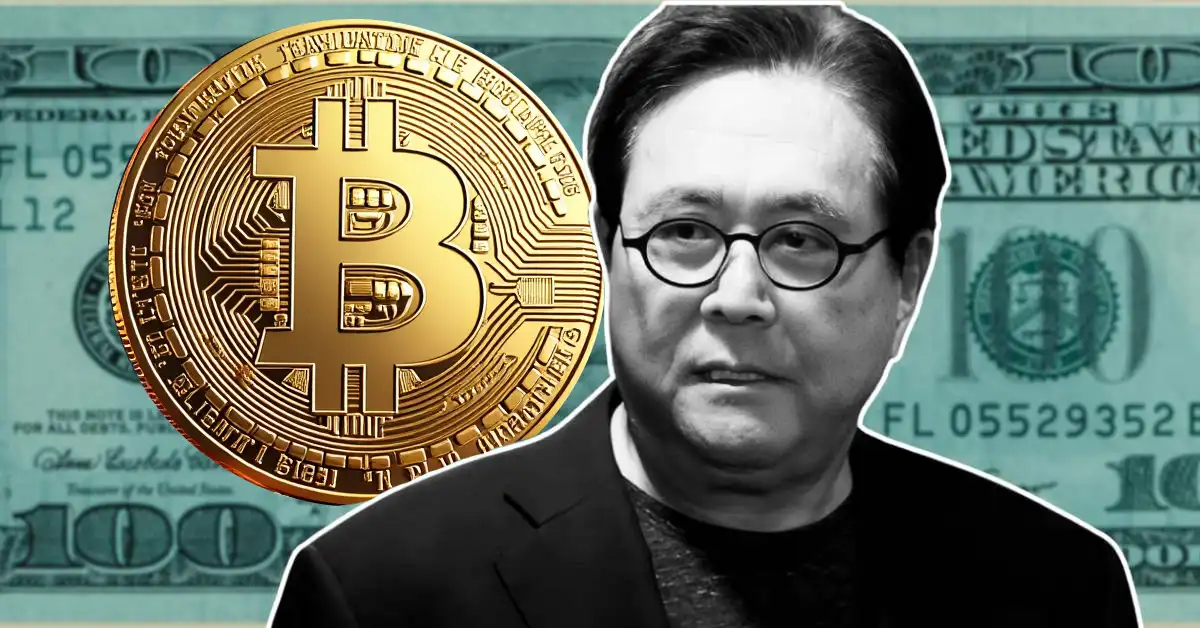‘Plus+ 500 Official Signal’, ‘eToro Signals’, ‘FXCM FX Signals’, and ‘FXStreet Signals’: these Telegram channels have tens of thousands (in some cases, hundreds of thousands) of followers. There are dozens of social media channels like them, mainly on Telegram. All of them use established brands’ names but have nothing to do with them. Most of them offer shady services or are outright scams.
Investment scams on social media (impersonating established brands) have become rampant. As an industry insider told Finance Magnates: “Clones are like mushrooms. You take down one, and ten more will take its place.”
Most of these impersonators offer signals of forex and other asset classes on the surface, which are free, with their real costs hidden. They are primarily offering two types of paid services: one is ‘premium’ signals, and the other is managed trading service using bots with insane returns. Finance Magnatesinteracted with more than a dozen of such scammers on social media.
The ones offering ‘premium’ signals charge $100 for at least a week and up to a month, with promises of sharing 8 to 10 “Gold signals” daily. They are even guaranteeing 99 percent profitability through their premium signals.
But, what is the scam here? Reputable signals providers are also selling subscriptions for premium trading signals. For example, FXStreet’s monthly subscription services range from $9.99 to $19.99. These legitimate platforms do not guarantee a success rate or make any elevated claims.
Other offerings from these scammers on social media are even more dangerous. They promise investment opportunities with insane returns: one offers $15,000 in return with an investment of only $1,000 in merely five days. Can Warren Buffet or Charlie Munger beat that?
Investment scam on Telegram
These scammers are very persuasive and even show fake client testimonials on their Telegram channels. One Telegram channel using FXStreet’s name, which Finance Magnates investigated, had about 66,000 followers, most of which are expected to be fake. However, a massive number of followers like this and pushy selling tactics often trap many victims.
When confronted by Finance Magnates, the fraudsters said they were the real FXStreet, ZuluTrade, or whatever companies they were impersonating. One even said: “We can’t list all that (services) on our website. If you’re not interested, STOP disturbing me here. I’m busy.”
Scammer on Telegram with a ‘blue-tick’ profile
What Are the Red Flags?
The obvious red flag is the inane returns. If it sounds too good to be true, it is. So, investors should not fall for such scams because of their sheer greed. The annualized returns of most stock market indices are often in single digits, and if someone offers an investment opportunity with guaranteed returns of double or triple digits within a few days, they are scammers; there is no doubt there.
Another red flag is the impersonation of established brands. Social media scammers often use the names of established brokers or reputed signal providers to create an aura of legitimacy. Investors must check the credibility of any social media channel when interacting with them about investment opportunities.
The impersonation scams are so rampant that an impersonator of one of the FXStreet analysts on Telegram tried to sell investment products to the Co-CEO of FXStreet. The impersonator is using both name and picture of the FXStreet analyst.
Fake account of FXStreet analyst on Telegram
“For the last few years, and sadly, I think it has a correlation with the crypto boom, there has been a spike in scams,” said Pere Monguió, FXStreet’s Co-CEO. “FXStreet doesn’t give trading services. We do not manage the money of users in any case.”
Indeed, investors should not engage with them further if someone is asking for payments for services only in crypto. Crypto payments are often untraceable, and the use of privacy coins and mixers made them the top choice for scams.
All fraudsters Finance Magnates interacted with on Telegram sought payments only in crypto. They even instructed how to make crypto payments step-by-step (from downloading wallets to sending payments). When Finance Magnates representatives showed an interest in their service and products but insisted on making bank transfers, they pivoted.
Pere Monguió, Co-CEO at FXStreet
Elaborating on the trends of the scams, Monguió said: “There are three of them. One is crypto. It’s much more that the more common crypto is, the easier it is to request crypto payments. So the harder it is to then claw that money back. The second trend is what is called the dark social, in which more and more social interactions are not on the open web, but in closed channels, in DM messages, etc. So Telegram, Discord, and WhatsApp are perfect for this type of scam. And the third one is artificial intelligence. These scams we saw require interaction with someone. But artificial intelligence will allow them to scale this incredibly.”
How Is the Industry Tackling Scammers?
The menace of social media scams is known to all. Brokers are aware of the misuse of their brand names and have acknowledged that such imposters harm both the brokers and their customers. Interestingly, while the real Plus500 account on Telegram has 2,910 subscribers, one of its clones has more than 40,600 subscribers.
Brokers, including Plus500, monitor and report these accounts for their activities. These actions can be reported to social media or sending direct messages to these pages. As far as Finance Magnates understood, most of the reports are answered positively, but they are treated differently according to each independent social platform.
Marios Chailis, CMO at Libertex Group
“Our legal representatives always take action against those impersonating the Libertex brand and deceiving unsuspecting traders. A cease and desist notice is issued, and in most cases will garner a successful result swiftly, however sometimes the whole process might take longer and we keep persisting until a successful result is achieved,” said Marios Chailis, CMO of Libertex Group.
“Most of the time Telegram is being quite helpful in taking these fraudulent channels down. Of course, it is very often that for everyone we take one down, another ten might appear.”
However, the experience of reporting scammers to social media was not the same for all. FXStreet told Finance Magnates that they reported the scammers by asking their staff to report them using the generic option on Telegram individually. Sometimes the social media platform takes action in a week or a month, but occasionally, their reports go unnoticed. Also, Telegram does not acknowledge its action against scammers nor has a direct channel for reputed firms to report the impersonators.
Rebecca Alter, Trust and Safety Architect at Sift
“Telegram’s privacy-focused features make it an attractive vehicle for bad actors,” said Rebecca Alter, Trust and Safety Architect at Sift. “Telegram is also playing a big role in the democratization of fraud, and making it easier for anyone with a mobile device to become a fraudster. The platform allows them to collaborate, exchange resources, and even sell and promote their ‘services’ to a large and receptive audience without being caught, providing what we call ‘Fraud-as-a-Service’. Unfortunately, the lack of regulation on Telegram makes it incredibly difficult to put a stop to these activities.”
Telegram, where most of these clones are brewing, has not made its policy about such impersonators public. Finance Magnates tried to reach out to Telegram to learn about its actions and policies against such fraudulent activity, but these efforts went unnoticed.
Raymond Quisumbing, Registered Financial Planner at Bizreport
“As of September 2021, Telegram’s policy regarding hosting clones is that they generally do not allow unauthorized clones of their platform,” said Raymond Quisumbing, Registered Financial Planner at Bizreport. “To my knowledge, Telegram has not yet enforced any measures for banning or verifying the identity of its users. Hence, it is wise for individuals to exercise caution when meeting new people online, especially when you have not even met them in person.”
Further, the ability of getting a so-called ‘blue tick’ for the profile name helps the scammers to create fake legitimacy. Anyone can subscribe to the premium service of Telegram and get the ‘blue tick’.
ForexLive, which offers technical analysis on financial markets and is a sister company of Finance Magnates, also identified some impersonators earlier this year. However, those were mostly websites that were taken down by the hosting company after sending a legal letter.
The second part will discuss the role of regulators in the crackdown against scammers and also awareness campaigns of companies.
‘Plus+ 500 Official Signal’, ‘eToro Signals’, ‘FXCM FX Signals’, and ‘FXStreet Signals’: these Telegram channels have tens of thousands (in some cases, hundreds of thousands) of followers. There are dozens of social media channels like them, mainly on Telegram. All of them use established brands’ names but have nothing to do with them. Most of them offer shady services or are outright scams.
Investment scams on social media (impersonating established brands) have become rampant. As an industry insider told Finance Magnates: “Clones are like mushrooms. You take down one, and ten more will take its place.”
Most of these impersonators offer signals of forex and other asset classes on the surface, which are free, with their real costs hidden. They are primarily offering two types of paid services: one is ‘premium’ signals, and the other is managed trading service using bots with insane returns. Finance Magnatesinteracted with more than a dozen of such scammers on social media.
The ones offering ‘premium’ signals charge $100 for at least a week and up to a month, with promises of sharing 8 to 10 “Gold signals” daily. They are even guaranteeing 99 percent profitability through their premium signals.
But, what is the scam here? Reputable signals providers are also selling subscriptions for premium trading signals. For example, FXStreet’s monthly subscription services range from $9.99 to $19.99. These legitimate platforms do not guarantee a success rate or make any elevated claims.
Other offerings from these scammers on social media are even more dangerous. They promise investment opportunities with insane returns: one offers $15,000 in return with an investment of only $1,000 in merely five days. Can Warren Buffet or Charlie Munger beat that?
Investment scam on Telegram
These scammers are very persuasive and even show fake client testimonials on their Telegram channels. One Telegram channel using FXStreet’s name, which Finance Magnates investigated, had about 66,000 followers, most of which are expected to be fake. However, a massive number of followers like this and pushy selling tactics often trap many victims.
When confronted by Finance Magnates, the fraudsters said they were the real FXStreet, ZuluTrade, or whatever companies they were impersonating. One even said: “We can’t list all that (services) on our website. If you’re not interested, STOP disturbing me here. I’m busy.”
Scammer on Telegram with a ‘blue-tick’ profile
What Are the Red Flags?
The obvious red flag is the inane returns. If it sounds too good to be true, it is. So, investors should not fall for such scams because of their sheer greed. The annualized returns of most stock market indices are often in single digits, and if someone offers an investment opportunity with guaranteed returns of double or triple digits within a few days, they are scammers; there is no doubt there.
Another red flag is the impersonation of established brands. Social media scammers often use the names of established brokers or reputed signal providers to create an aura of legitimacy. Investors must check the credibility of any social media channel when interacting with them about investment opportunities.
The impersonation scams are so rampant that an impersonator of one of the FXStreet analysts on Telegram tried to sell investment products to the Co-CEO of FXStreet. The impersonator is using both name and picture of the FXStreet analyst.
Fake account of FXStreet analyst on Telegram
“For the last few years, and sadly, I think it has a correlation with the crypto boom, there has been a spike in scams,” said Pere Monguió, FXStreet’s Co-CEO. “FXStreet doesn’t give trading services. We do not manage the money of users in any case.”
Indeed, investors should not engage with them further if someone is asking for payments for services only in crypto. Crypto payments are often untraceable, and the use of privacy coins and mixers made them the top choice for scams.
All fraudsters Finance Magnates interacted with on Telegram sought payments only in crypto. They even instructed how to make crypto payments step-by-step (from downloading wallets to sending payments). When Finance Magnates representatives showed an interest in their service and products but insisted on making bank transfers, they pivoted.
Pere Monguió, Co-CEO at FXStreet
Elaborating on the trends of the scams, Monguió said: “There are three of them. One is crypto. It’s much more that the more common crypto is, the easier it is to request crypto payments. So the harder it is to then claw that money back. The second trend is what is called the dark social, in which more and more social interactions are not on the open web, but in closed channels, in DM messages, etc. So Telegram, Discord, and WhatsApp are perfect for this type of scam. And the third one is artificial intelligence. These scams we saw require interaction with someone. But artificial intelligence will allow them to scale this incredibly.”
How Is the Industry Tackling Scammers?
The menace of social media scams is known to all. Brokers are aware of the misuse of their brand names and have acknowledged that such imposters harm both the brokers and their customers. Interestingly, while the real Plus500 account on Telegram has 2,910 subscribers, one of its clones has more than 40,600 subscribers.
Brokers, including Plus500, monitor and report these accounts for their activities. These actions can be reported to social media or sending direct messages to these pages. As far as Finance Magnates understood, most of the reports are answered positively, but they are treated differently according to each independent social platform.
Marios Chailis, CMO at Libertex Group
“Our legal representatives always take action against those impersonating the Libertex brand and deceiving unsuspecting traders. A cease and desist notice is issued, and in most cases will garner a successful result swiftly, however sometimes the whole process might take longer and we keep persisting until a successful result is achieved,” said Marios Chailis, CMO of Libertex Group.
“Most of the time Telegram is being quite helpful in taking these fraudulent channels down. Of course, it is very often that for everyone we take one down, another ten might appear.”
However, the experience of reporting scammers to social media was not the same for all. FXStreet told Finance Magnates that they reported the scammers by asking their staff to report them using the generic option on Telegram individually. Sometimes the social media platform takes action in a week or a month, but occasionally, their reports go unnoticed. Also, Telegram does not acknowledge its action against scammers nor has a direct channel for reputed firms to report the impersonators.
Rebecca Alter, Trust and Safety Architect at Sift
“Telegram’s privacy-focused features make it an attractive vehicle for bad actors,” said Rebecca Alter, Trust and Safety Architect at Sift. “Telegram is also playing a big role in the democratization of fraud, and making it easier for anyone with a mobile device to become a fraudster. The platform allows them to collaborate, exchange resources, and even sell and promote their ‘services’ to a large and receptive audience without being caught, providing what we call ‘Fraud-as-a-Service’. Unfortunately, the lack of regulation on Telegram makes it incredibly difficult to put a stop to these activities.”
Telegram, where most of these clones are brewing, has not made its policy about such impersonators public. Finance Magnates tried to reach out to Telegram to learn about its actions and policies against such fraudulent activity, but these efforts went unnoticed.
Raymond Quisumbing, Registered Financial Planner at Bizreport
“As of September 2021, Telegram’s policy regarding hosting clones is that they generally do not allow unauthorized clones of their platform,” said Raymond Quisumbing, Registered Financial Planner at Bizreport. “To my knowledge, Telegram has not yet enforced any measures for banning or verifying the identity of its users. Hence, it is wise for individuals to exercise caution when meeting new people online, especially when you have not even met them in person.”
Further, the ability of getting a so-called ‘blue tick’ for the profile name helps the scammers to create fake legitimacy. Anyone can subscribe to the premium service of Telegram and get the ‘blue tick’.
ForexLive, which offers technical analysis on financial markets and is a sister company of Finance Magnates, also identified some impersonators earlier this year. However, those were mostly websites that were taken down by the hosting company after sending a legal letter.
The second part will discuss the role of regulators in the crackdown against scammers and also awareness campaigns of companies.
Credit: Source link















































